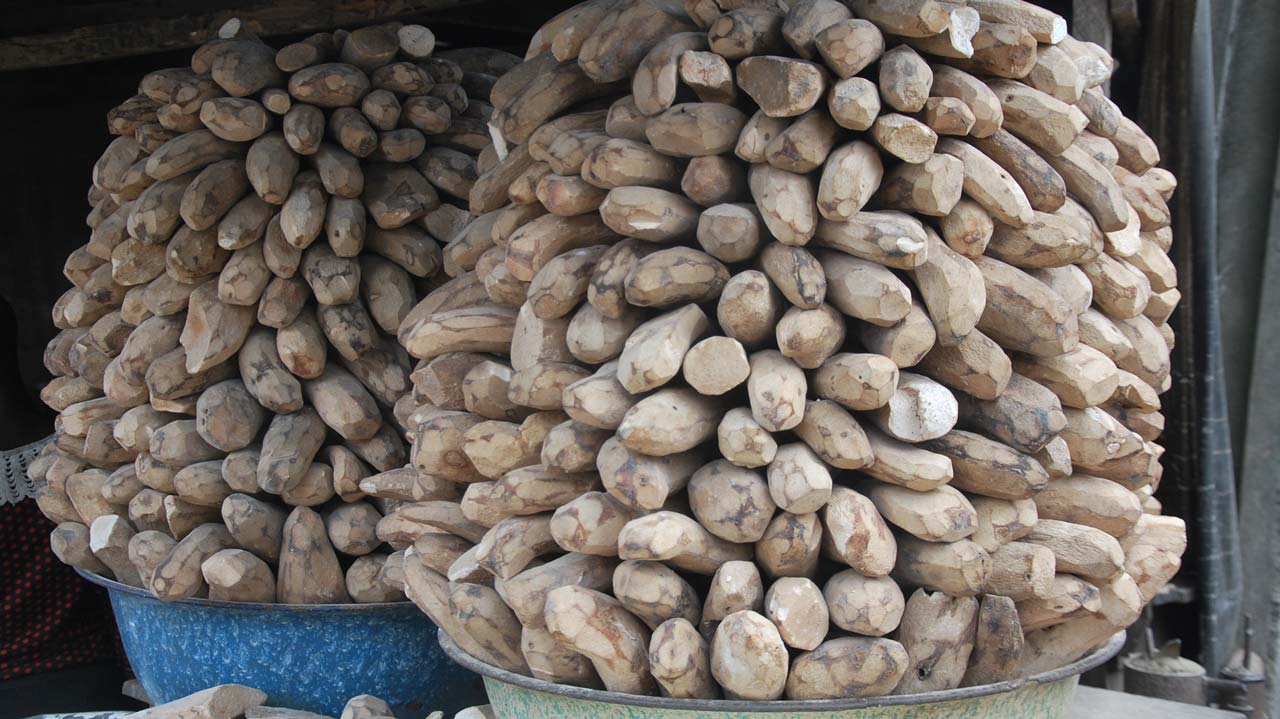
• Advocate shift to local foods, more investments in the sector
• Say research, technologies inevitable in agribusinesses
As Nigeria joins the world to celebrate Food Day today, scientists, farmers and entrepreneurs have refuted the Federal Government’s position that Nigeria is food-secure.
Sabo Nanono, Minister of Agriculture, claimed while speaking to journalists on Monday that Nigerians are not hungry because food is abundant and cheap, but experts say data available in all major food crops prove that the country is food-insecure. Some scientists and farmers also called on Nigerians to adjust their taste to locally produced foods to deepen demand and encourage investments in the sector.
The Vice Chancellor of the Federal University of Agriculture, Abeokuta (FUNAAB), Prof Kolawole Felix Salako urged Nigerians to develop taste for local foods.He said, “Food should be part of culture. Therefore, it is trite to admonish Nigerians to developed taste for Nigerian food. In any case, while some food types, like rice, may be seen as universal, food preferences differ from one cultural group to the other.
“Having said this, what we must tell our people is to promote cultural values related to local food types. Many of our local but cheap food items, e.g. vegetables, fruits, etc. nourish us and make us healthy when taken as balanced diets.”
Prof. Bamidele Omitoyin, a former Dean of Renewable Natural Resources, University of Ibadan, said Nigeria is far from being food-secure from indices available on various commodities in Nigeria despite the abundant resources. Omitoyin said, “That is not correct. What are the indices? Data from all sub-sectors show that we are not sufficient.
“Over 160 million Africans are malnourished and Nigeria accounts for over 40 per cent. Daily, millions of people beg for food in Nigeria. We have the potential to produce enough food but it has not translated to realities.”He advocated massive investment in rural development to open up communities for modern farming, saying innovations through research and investments could break barriers and make Nigeria food-secure.
Omitoyin, an aquaculture specialist, said volume of fish produced in Nigeria has reduced from over 300,000 metric tonnes to about 296,000 tonnes between 2016 and now. Executive Director of the National Horticultural Research Institute (NIHORT), Dr Abayomi Olaniyan, also admitted that Nigeria has not reached a point where it can claim food security.
“We have not reached the food security point, though this administration has been trying to rev up food production,” Olaniyan said.Executive Secretary of Plantation Owners Forum of Nigeria (POFON), Mr Fatai Afolabi, although the country lacks credible statistics, evidences abound that Nigeria has made incredible and remarkable leap towards achieving self-sufficiency in food production.
“However,” he admitted, the value chains for the popular staples and industrial crops remain poorly developed. It is, therefore, ironical that despite the gains being recorded, Nigeria remains miles away from attaining food security. Our food supply matrix of quantity, wholesomeness and price provides a deplorable testimonial of our food security situation.”
He too advocated that Nigerians should embrace made-in-Nigeria foods, including rice.“Over the years, Nigerians have developed taste and patronage for imported foods, but we need a paradigm shift to address the food security problem of the country. “First will be to respect the preferences and the choices of the people and not force them to eat expensive and poor-quality food. “Then a renewed approach towards food security will be to encourage and mobilise the new generation food supply chain actors to leverage on technologies and innovations to deliver premium quality and cheap food to the populace,” he suggested.






